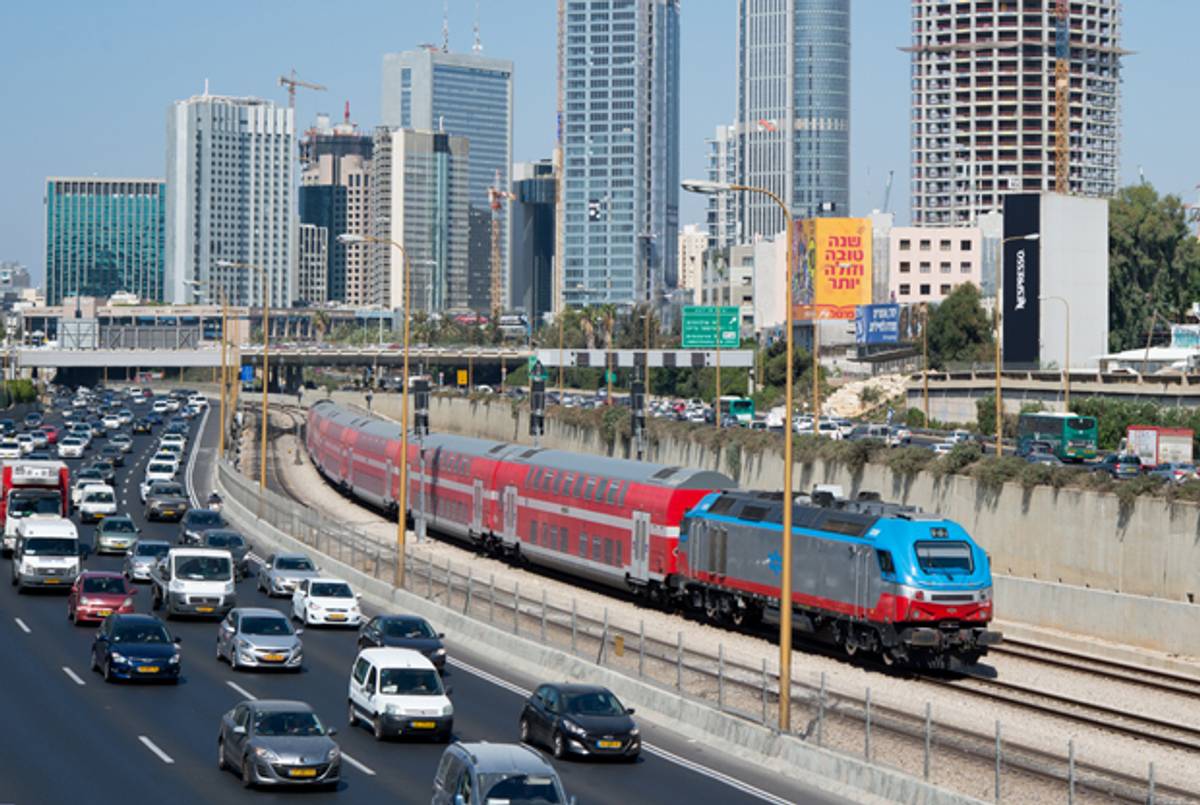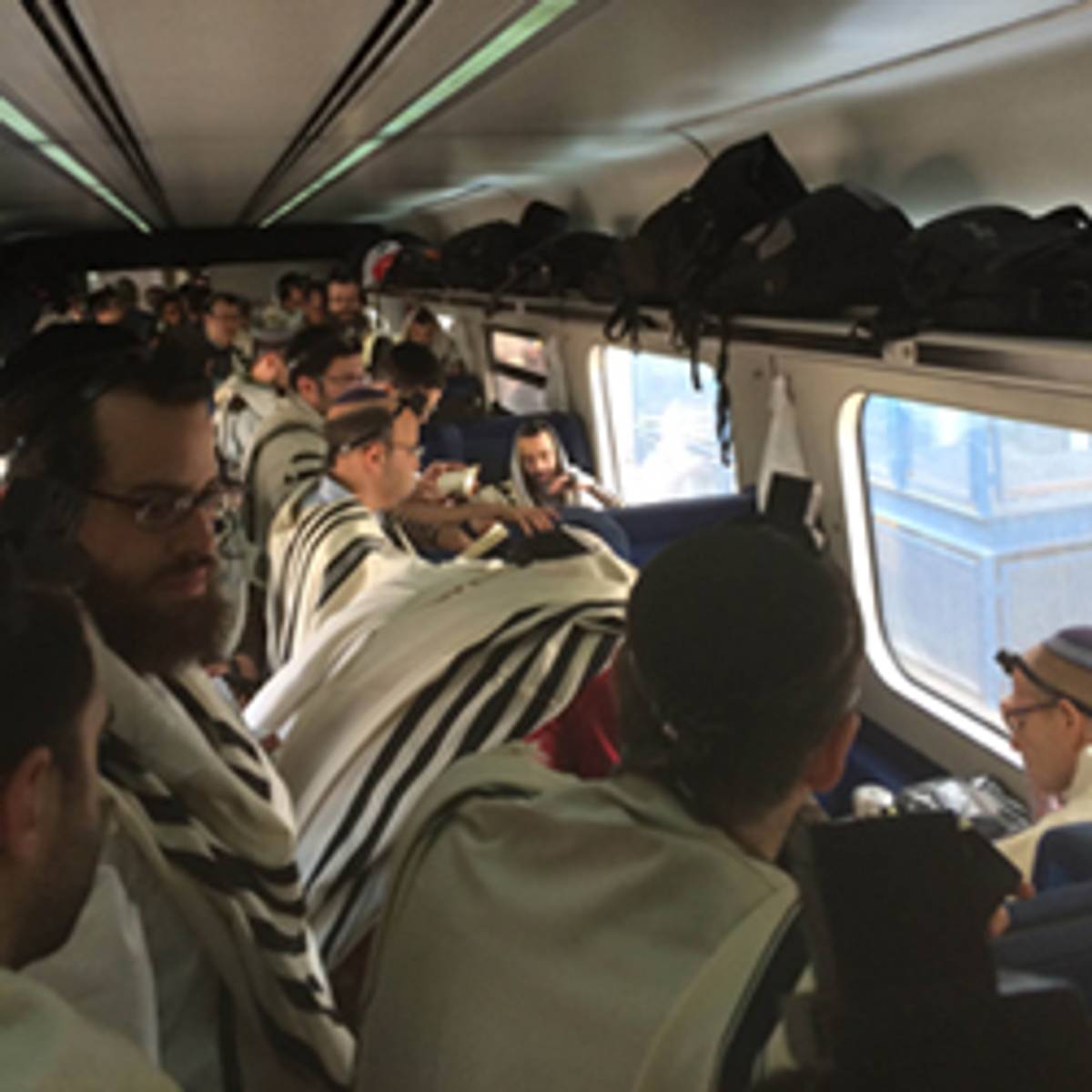
Working in Israel offers numerous perks to an observant Jew. Moving from a downtown Chicago office to working in the heart of Tel Aviv in the Azrieli Center has provided me with no dearth of options for kosher food and places to pray the afternoon Mincha service. While I certainly miss Sundays off, it’s quite a relief not having to figure out how to make it home in time for a 3:59 p.m. Shabbat candle-lighting time during a Chicago snowstorm.
But in my short time living in Israel since I made aliyah in October 2014 with my wife and two daughters, my favorite adjustment has actually been the commute to the workplace, where I have the opportunity to pray the Shacharit service each morning on the train from Beit Shemesh to Tel Aviv with a moving minyan.
During the morning the train is filled with people from all walks of life, but the back car of the train is unofficially designated the “minyan car.” It quickly fills up with those who wish to pray their morning services on their commute to work. Men busy themselves putting on their tefillin and wrapping themselves with their tallit. Once the train doors close, the riders in the minyan car set their hearts towards the east as the train heads to the west.
While it’s an Orthodox minyan intended for men, it’s not an official train-sponsored minyan, which means anyone can sit in the car and nobody is forced to move for the informal gathering. I’ve only seen respectful interactions between minyan-goers and those seated nearby.

What makes this train minyan particularly unique (not that there are many others like it) is that there is a tiny Torah scroll provided by one of the minyan members for the service every Monday and Thursday, as well as on other days when the Torah is read, including Rosh Chodesh and Hanukkah. Many people, myself included, tailor their commute schedule to make sure their Monday and Thursday ride is on a train that has a Torah—either the 7 a.m. or 8 a.m.
Once in the crowded minyan car, I push my way to the back of the train to join the Kohanim, members of the priestly tribe, who gather together to chant the Birkat Kohanim, the priestly benediction, at the designated time towards the end of the Shemoneh Esrei prayer. Before moving to Israel, I had never said the Birkat Kohanim on a daily basis, but now, instead of reciting it by rote, I feel especially connected to the words of the prayer.
After an introductory blessing, the Kohanim repeat the following prayer in Hebrew after the Chazzan:
May God bless you and guard you,
May God make His face shed light upon you and be gracious unto you,
May God lift up His face unto you and give you peace.
I have always found the text of the Birkat Kohanim remarkably uplifting. But as I recite the prayer each morning—on a moving train in the State of Israel—the words have taken on an entirely new meaning for me, and even more so when I am chanting it during the difficult security situation that Israel is currently facing. On a train filled with the spectrum of Israeli society, I have a unique opportunity to provide the passengers, including the soldiers and police officers who risk their lives to defend the State of Israel, with a blessing of protection and peace.
The Talmud explains in tractate Sotah 38b that Birkat Kohanim reaches out to the people “out in the fields” who are unable to be present during the recitation of the blessing. As we literally pass through the fields in the vicinity of Ramla and Lod each morning during Birkat Kohanim, I always smile at how literal the Talmudic saying has become in my own life. And I wonder, could the rabbis of the Talmud ever have imagined that an immigrant Kohen to Israel would be passing through the fields with a minyan while reciting the Birkat Kohanim and praying for peace?
Related: Taken for a Ride in Jerusalem
Aaron R. Katz is an associate in the corporate and securities practice at Greenberg Traurig. He lives with his wife and three children in Israel.